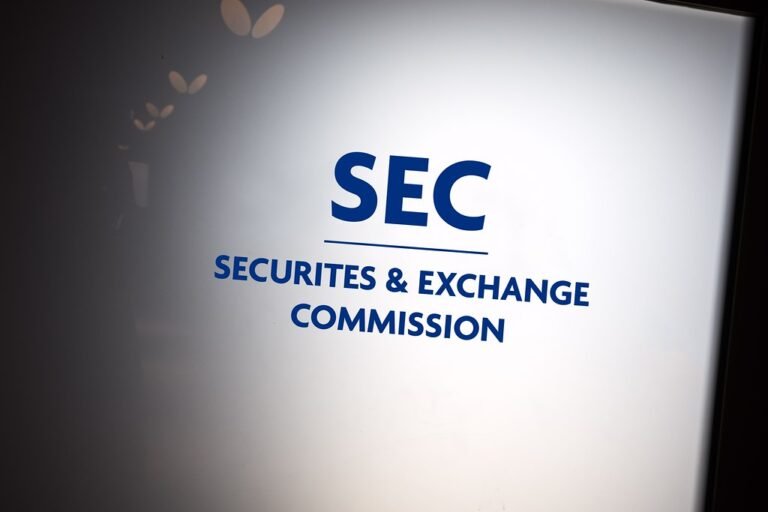
New York, NY — A cryptocurrency payments company founder has been arrested and charged with running a complex scheme to launder over $500 million through the U.S. financial system, violating sanctions, export controls, and banking regulations, as announced by federal prosecutors on Monday.
Iurii Gugnin, who is also known as Iurii Mashukov and George Goognin, is a 38-year-old Russian citizen living in New York. He faces 22 criminal charges, which include bank fraud, wire fraud, money laundering, sanctions violations, and noncompliance with the Bank Secrecy Act.
The indictment, which has now been made public, reveals that Gugnin utilized his cryptocurrency firms, Evita Investments Inc. and Evita Pay Inc., to covertly channel funds from foreign clients—many of whom are linked to sanctioned Russian banks—through U.S. banks and cryptocurrency exchanges. The U.S. Department of Justice claims that Gugnin not only assisted his clients in evading U.S. sanctions but also concealed transactions involving American technology that is subject to export controls, intended for Russian entities.
Cryptocurrency Company as a Front for Sanctioned Transactions
Gugnin allegedly operated Evita as a covert money laundering operation, using the appearance of a legitimate fintech startup to hide his role in moving massive amounts of cryptocurrency—primarily the stablecoin Tether (USDT)—on behalf of foreign nationals. Between June 2023 and January 2025, he reportedly moved approximately $530 million through U.S. banks.
Prosecutors say Gugnin lied to financial institutions and cryptocurrency platforms about Evita’s activities, falsely claiming it had no dealings with sanctioned Russian entities. In reality, Evita served clients with accounts at PJSC Sberbank, PJSC Sovcombank, PJSC VTB Bank, and JSC Tinkoff Bank—all of which are subject to U.S. sanctions.
Gugnin also maintained personal accounts at JSC Alfa-Bank and PJSC Sberbank, using them while living in the United States to conduct transactions in violation of federal law.
Ties to Russian Government Interests
In addition to breaching sanctions, Gugnin is accused of aiding in the payment processes for sensitive U.S. technology and export-controlled electronics. This includes a server created by an American technology company and components that were subsequently utilized by Rosatom, the state-owned nuclear enterprise of Russia. Court records reveal that Gugnin obtained payments from a supplier located in Moscow and subsequently assisted in procuring parts for Rosatom using laundered money.
In an effort to avoid detection, Gugnin allegedly manipulated invoices—digitally “whiting out” the identities of Russian customers—and failed to report suspicious activity as required under the Bank Secrecy Act.
Evidence of Conscious Wrongdoing
Federal agents say Gugnin’s own internet search history revealed his awareness of the criminal nature of his conduct. Among the searches noted in the indictment:
- “how to know if there is an investigation against you”
- “money laundering penalties US”
- “penalties for sanctions violations EU luxury goods”
- “am I being investigated?”
He also reportedly visited several pages offering guidance on recognizing signs of a criminal probe.
Charges and Potential Penalties
If convicted, Gugnin faces serious consequences:
- Up to 30 years for each count of bank fraud
- Up to 20 years for each count of wire fraud, sanctions violations, and money laundering
- Up to 10 years for failing to implement an anti-money laundering program and failure to file suspicious activity reports
- Up to 5 years for conspiracy to defraud the United States and operating an unlicensed money transmitting business
National Security and Financial Integrity at Stake
Officials emphasized the national security implications of the case.
“The defendant is charged with turning a cryptocurrency company into a covert pipeline for dirty money… to aid sanctioned Russian banks and help Russian end-users acquire sensitive U.S. technology,” said Assistant Attorney General John A. Eisenberg. “This behavior directly undermines U.S. sanctions and export controls.”
“Let this serve notice,” added FBI Counterintelligence Assistant Director Roman Rozhavsky, “that using cryptocurrency to hide illegal conduct will not prevent the FBI and our partners from holding you accountable.”
Gugnin was arraigned in New York on Monday. The charges against him remain allegations, and he is presumed innocent unless and until proven guilty in a court of law.



